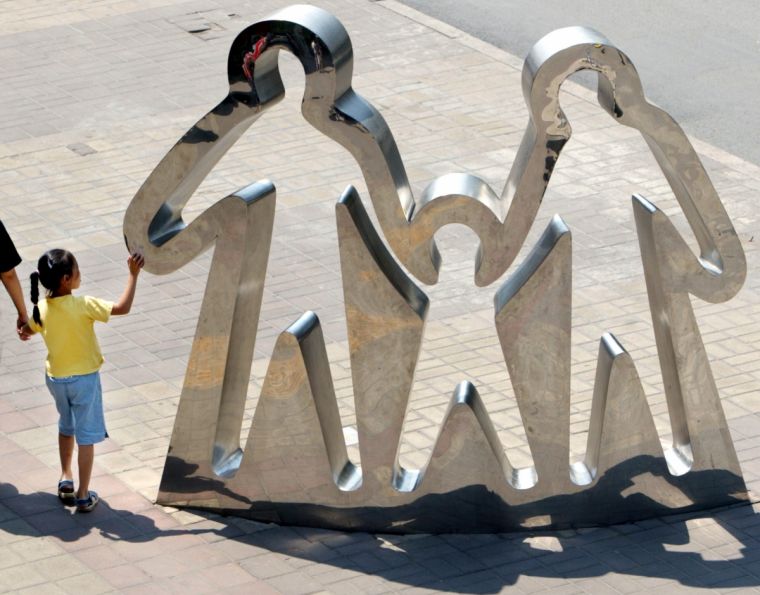China: Five months pregnant woman ordered to have abortion

A teacher in China has been ordered to have an abortion or risk losing her job.
Qin Yi, who is five months pregnant, had gained permission to have a child from authorities in her hometown, Huangshan City in Anhui province in the east of China. However, she and her husband, Meng Shaoping, live in Guizhou province, where the rules of the one-child policy are stricter.
Both Qin and Meng each have a daughter with their pervious spouses, and in Guizhou, couples may not have a child if they have more than one between them from a previous marriage. According to AP, the education bureau and health and family planning commission in Guizhou's Libo county confirmed this in a notice on Monday.
Qin has therefore been told she will be fired from her teaching post if she does not abort her unborn child by the end of May. An officer for the commission told AP that authorities are investigating whether Qin transferred her residency to Huagshan earlier this year purely to get permission to have a baby.
China's one-child policy, introduced in 1978, is touted by the Communist Party as being vital to alleviating social, economic and environmental problems across the country. However, it has come under significant criticism from human rights groups.
Speaking before the Congressional Executive Commission on China at the end of April, Reggie Littlejohn – president of Women's Rights Without Frontiers – condemned the policy as "brutal".
"The problem with the one-child policy is not the number of children 'allowed.' Rather, it is the fact that the CCP is telling women how many children they can have and then enforcing that limit through forced abortion and forced sterilization," Littlejohn said.
She criticised suggestions that China has relaxed its policy, now allowing couples to have a second baby if either parent is an only child. "This minor adjustment did not 'ease' the one-child policy. It merely tweaked it," Littlejohn said.
"Even if all couples were allowed two children, there is no guarantee that the CCP will cease their appalling methods of enforcement. Regardless of the number of children allowed, women who get pregnant without permission will still be dragged out of their homes, strapped down to tables, and forced to abort babies that they want."
A significant issue for China is what human rights activists refer to as 'gendercide'. Given the social benefits of having a male child, sex-selective abortions mean there is a huge gender imbalance, which Littlejohn said is a "powerful, driving force behind trafficking in women and sexual slavery, not only in China, but in neighbouring nations as well."
"Continuing the one-child policy makes no demographic sense. China's population problem is not that it has too many people, but too few young people and too few women. Limiting births can no longer justify the policy," she added.
Last year, Nobel Peace Prize nominee Chen Guangcheng accused the Chinese government of having "contempt for the lives of human beings".
"After several decades of the one-child policy implementation and the use of forced abortion, the Chinese people live in an atmosphere of fear of the government," Guangcheng said during an address at The Heritage Foundation. He added that his own personal investigation in China in 2005 found that more than 100,000 women had had abortions unwillingly.
"Through all these years of policy implementation and propaganda, the Chinese Communist Party wants the Chinese people and the public to know that they have to follow their orders in family planning policy or one-child policy implementation or else they will suffer and pay a huge price for what they call the violation of the rules," he continued.
"[This] has demoralized the Chinese society, switching it from a society that highly values life to a social decay where society looks down on and has a contempt for the individual lives of human beings."











